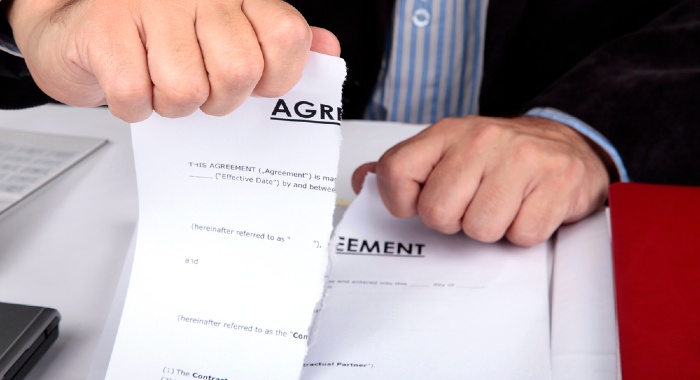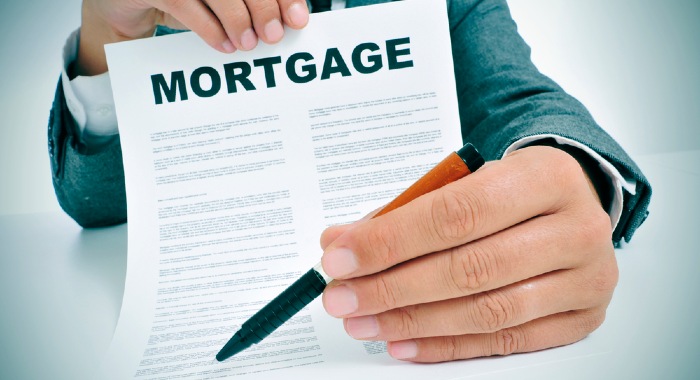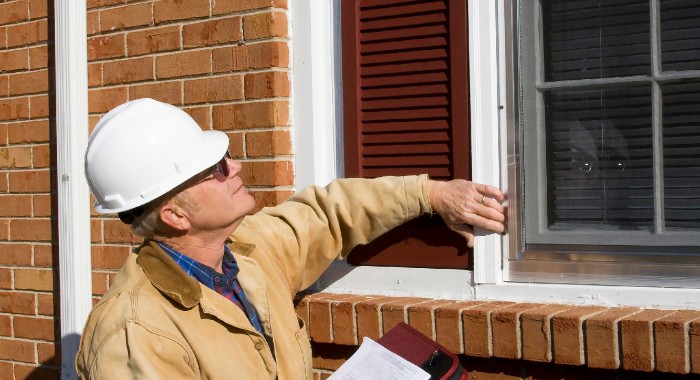It is said to be one of life’s most stressful undertakings, and that’s the process of buying a house.
The Property Road team takes a look at buying a property to help guide you through the steps when it comes to buying a home.
Most of the information is relevant to first-time buyers, but also to those who may not have bought a property for some time.
We will tackle the process for buying a property in England and Wales, and then explain the slightly different process that occurs for buying a property in Scotland.
How long will it take to buy a house?
One of the first questions that people have when it comes to the process of buying a house in the UK, is how long will it take?
A lot obviously depends on the house seller’s circumstances and also yours. You also need to factor in any issues that may arise with conveyancing and there will be delays in other areas.
However, the process will take anything from six weeks and up to 8 months. This will include:
Finding a property
You will need to research the area where you want to live, visit estate agent websites, and even agent offices to arrange viewings.
Scotland: it’s been the law since 2008 for a Home Report to be prepared for all domestic properties that are marketed for sale. Also, solicitors sell homes rather than estate agents.
Undertake viewings and put in an offer
Putting in the offer is when you’re telling the seller what you are prepared to pay and what conditions you are prepared to negotiate on.
Your offer is accepted

Scotland: a minimum price will be set by the seller and if there’s more than one potential buyer then a blind bidding process will begin. Also, a letter containing specific information is sent to the solicitor who will then ‘note’ the buyer’s interest to the seller.
Once the offer has been accepted, you need to have a survey to check the condition of the property.
Scotland: There’s a big difference in Scotland because once the seller accepts the offer, a letter of ‘qualified acceptance’ will be sent with conditions to be agreed and once they are, the offer is legally binding. Breaking this legal agreement will cost thousands of pounds in liability to the seller. Also, the buyer has legal responsibilities and must obtain buildings insurance from the date the offer or ‘missive’ is accepted.
It’s highly recommended that you have a full survey carried out by a chartered surveyor.
Your solicitor will also need to check any legal issues and this is where the conveyancing process really pays off.
A conveyancing solicitor will check that everything is legally sound and that the contracts can be exchanged.
Contracts exchanged
You will pay a deposit for the property and after contracts have been exchanged, you cannot back out without this costing you a lot of money.
Completion
You’re now heading towards the completion process where you will be handed the title deeds and the keys.
You will need to hand over the balance of what you owe before the property is considered to be legally yours.
Legal warning
It’s important to appreciate that no-one is legally bound to complete the purchase of property in England and Wales until your legal contracts have been exchanged.
Find the property you want and can afford

The previous answer explained the process of buying a property in a digestible format.
But the big sticking point is whether you can afford the property that you actually want to buy.
It’s here you’ll need to sit down with a calculator and work out:
- How much cash will you need to buy a property;
- How much you access as a mortgage (after you have paid the deposit).
If not, you’ll need to save up any additional cash because the expenses when buying a house really do add up.
Which Online Estate Agency Is Right For You?
Answer 5 simple questions to get a personalised recommendation:
Meet a mortgage broker
It’s also a good idea to consider meeting with a mortgage broker, or visiting a building society, to see whether you will be accepted for a mortgage.
This process will also reveal how much you can borrow to buy a house.
Also, having a pre-agreed mortgage deal makes you more attractive as a potential purchaser to sellers and estate agents.
That means you will have to get a mortgage application in principle completed and agreed.
These mortgages are known as an agreement in principle (AIP) but they are only valid, usually, for 30 days. Some lenders will offer an AIP for up to 90 days, so you need to be wary of the expiry date.
If this happens to you, then if you have been accepted once for an AIP, you are likely to be accepted again.
However, you need to be aware that mortgage products will change on a frequent basis so it may be worth searching to find a new mortgage lender rather than going back to the original firm.
Finding your dream home
Once you understand the process of buying a house in the UK, and whether you can afford to look for a property, it is time to find your dream home.
This means your search will be restricted to your budget and/or where you want to live.
It’s important that when you begin your search for a dream property, you visit at various times and at weekends to ensure it really will meet your needs and you won’t suffer from disturbance from neighbours.
Offering the purchase price

This can be a stressful point when it comes to buying a property in England and Wales.
Firstly, you have spent time getting a mortgage agreed in principle to see how much you can borrow, and then you spend more time looking for and then visiting potential properties.
When you find the home of your dreams, it is time to make an offer on it.
Get this wrong, and the seller will not be interested but you don’t want to overbid and spend too much on your home.
Also, you may be encouraged by the seller or estate agent to offer a higher amount but you should never spend more on a property than you can afford.
It’s also at this point you really understand which fixtures and fittings you are buying in writing in case you move into a property and they are not there.
Having your offer accepted
It’s a relief to have an offer for a property accepted but your work isn’t over yet.
You are not bound legally to complete the property purchase with the seller until the exchange of contracts, and there are issues including gazumping.
Gazumping
Gazumping is when another buyer decides to offer more money than your bid and the seller accepts their offer to renege on your deal.
You could ask the seller to take the property off the market as a condition of making an offer – they are under no obligation to do so but it’s certainly worth asking.
Gazanging

This is a relatively new term, and it’s a sad one because it is when a seller decides to cancel the sale and remain in their home.
This is usually because house prices in their area are increasing quickly and they think they can make more money by waiting a few months and then re-advertising their property for sale.
Unfortunately, there’s very little that you as a buyer can do to avoid gazumping and gazanging because you need the goodwill of the seller.
Again, this could be an expensive process if gazumping occurs just before the exchange of contracts because you will have surveyor and solicitor fees to pay – while having no house to move into.
It’s for this reason that you really should be quick after making an offer to move onto the exchange of contracts.
Scotland: Gazumping and gazanging do not occur here. As explained previously, once an offer has been accepted by the seller, this is a legally binding contract and is very expensive to back out of.
Choosing a conveyancing firm
For those who may not be aware, conveyancing is the term used to explain the legal process that will see a property being transferred legally from one person to another.
Lots of solicitors have conveyancing specialists but there are also licensed conveyancers available as well.
They will undertake all of the legal paperwork and carry out searches of the local council and Land Registry so there are no unexpected surprises. For example, having a new motorway plough through your new home within a year of you buying it.
The conveyancer will also draft the contract for buying the property and also deal with the money when contracts are exchanged.
It may also help speed up the house buying process if you find a conveyancing solicitor when you begin looking for a property and be prepared to spend up to £1,500 for their services.
This is a good idea because once your offer is accepted, you don’t want to be panicked into finding a conveyancer who is unreliable or uncommunicative.
What your conveyancer will do for you

The conveyancing will begin while your mortgage application is in the lender’s approval process.
The conveyancing fees will vary, and the conveyancer may also offer some options about which searches to do – regular property investors advise that it’s always a good idea to have all searches carried out.
Which Online Estate Agency Is Right For You?
Answer 5 simple questions to get a personalised recommendation:
These will include:
Local authority searches
The conveyancing firm will check to see whether you should be aware of potential problems including enforcement actions, building control issues or any planned nearby road schemes.
Drainage searches
Your home should be connected to sewers and you’ll pay around £35 for this check to be carried out.
Environmental search
The conveyancer will need to check that the land your home sits on, and nearby land, has not been contaminated. The search may cost you around £30.
Conveyancer fees
It’s worth pointing out that while these searches will cost you money, these are likely to be fees your solicitor will charge early on in the process so they will not be out of pocket should your purchase not go through.
There’s no way of avoiding these fees, or even minimising them, so this is where your cash savings will be needed.
Finally, be aware that some conveyancers are very busy and may not communicate that well.
Don’t lose sight that you are paying them for a service, and if they don’t deliver or appear to be working quickly, then you need to find out why. They should tell you what they are doing and, if not, you need to write or speak with a senior employee to find out what’s going on.
Solicitors taking too long are one of the most common reasons for complaint among home movers.
The mortgage lender will carry out checks

Regardless of having an agreement in principle from a mortgage lender, you will still need to make a full mortgage application. This means the lender will check:
- the information you give is accurate, so they are prepared to lend to you;
- your payslips and other evidence;
- the property is worth the money.
Another potential hurdle for someone buying a property is that the property may not be worth what a mortgage lender believes.
The main aim for the lender checking the property’s value is to get their money back should you fail to pay your mortgage and they repossess the property.
Also, the lender will be looking to ensure that the property you are buying is fit for purpose – lenders will not offer a mortgage on a property without a bathroom, for example.
It’s also worth understanding that the value of your property may not be what you offer or pay for it.
This means that the mortgage lender will ignore those figures and focus instead on the official valuation and base their mortgage deal’s loan-to-value ratio on that.
Again, this is where you may need cash to make up the difference to ensure you buy the home of your dream.
It’s also worth noting that lenders have their own rules about the property type they will lend on and this will be down to their ability to resell it if necessary.
Finally, you cannot make a mortgage application, or even receive a formal mortgage offer, without first having a property that has had an offer from you accepted by the seller.
Do I really need to have my property survey?
We have added this as a separate section because lots of homeowners decide to save money on their survey.
Firstly, you should arrange for a property survey to be carried out as soon as possible to check that it is in good condition.
The survey must be carried out before the exchange of contracts because the surveyor may find something that will lead to you pulling out of the deal.
Don’t be confused

Lots of homeowners, particularly first-time buyers, may be confused about the terminology being used.
You need to understand clearly that a mortgage valuation is carried out for the mortgage lender to have an amount it is willing to lend on.
This is not a survey, so a mortgage valuation offers no protection.
This is an issue should your property have a major problem the day after you move in.
If there is, then there’s nothing you can do because the problem was not highlighted so you need to avoid relying on a mortgage valuation in the false belief that it’s a proper survey.
Other property valuation issues to consider:
- A mortgage valuation may not involve a surveyor visiting the property and instead they may just be doing a ‘drive-by’.
- Homebuyers report: This is the cheapest version of a survey and will cost between £300 and £400. Better suited for a conventional property that’s under 50 years old, it is a basic survey.
- A full structural survey: This will bring peace of mind, though you can expect to spend up to £1,000 for a chartered surveyor to carry this out. If your potential property is older than 50 years, then you definitely will need a full structural survey.
The survey itself has more details and also provides the evidence in case you need to negotiate on the purchase price. A surveyor will go to lots of trouble to carry out the survey.
For those who are buying a new build, then you need to be aware of a snagging survey. This will highlight any unfinished work or any defects that you can then use for the developer to correct before your contracts are exchanged. Again, a snagging survey will cost around £300 though this depends on the property size.
You’ve received your mortgage offer
This is a great point when buying a house because the mortgage lender has made a formal offer to lend money so you can buy your property.
You will need to check the paperwork to ensure that the mortgage offer is accurate – check your personal figures and information again.
If there is an issue, then your solicitor or mortgage broker needs to work quickly to get this resolved.
Should there be a serious mistake, then you are facing the prospect of your mortgage lender carrying out another credit check which will impact on the time to complete, and you run the risk of having the mortgage offer being withdrawn.
How to negotiate a completion date

Your conveyancing solicitor should be keeping you informed on the results from the searches they carry out.
If there are no issues, then you need to discuss with the seller what the completion date will be.
This is the date when you get the keys and deeds, and the property is officially yours.
You may find that most sellers will be looking for a date at the end or beginning of the month so it fits in with their mortgage payments.
For those who are in a chain, this means you are selling your property and need to discuss with your buyers which dates are suitable for them. This process can become complicated and frustrating in equal measure!
Which Online Estate Agency Is Right For You?
Answer 5 simple questions to get a personalised recommendation:
You will need your deposit
As you approach the date for exchanging contracts, you need to place your deposit with your solicitor.
This is where you’ll need to sign a contract prepared by your solicitor where you are committing to buying the property
Once done, things move very quickly in the process of buying a house.
The seller’s solicitor and your solicitor will swap the signed contract copies which is more formally known as the exchange of contracts.
This is the point you can celebrate because you are now the legally recognised owner.
You will need a completion statement from the solicitor which then gives a breakdown of the money you need to pay them, including any stamp duty, land tax, the outstanding deposit, and their fees.
The solicitor will also check, before the process is complete, that the seller is still the property’s owner and that you have not been made bankrupt since the mortgage offer was made.
It’s also a good idea to get buildings insurance for peace of mind.
Signing the transfer deed
You will need to sign this to show you are willing to take ownership of the property, and it needs to be witnessed. This will be sent to your seller’s solicitor. Not every buyer will need to sign this, but it’s always worth checking with your solicitor if you are unsure.
The solicitor will then draw down the funds from your mortgage lender and time is necessary for these funds to clear.
The solicitor will then use those funds for paying for the house and will send this money to the seller’s solicitor and in return receive the title deeds as proof that the seller’s mortgage for that property has been cleared. (This is important because no-one then will be able to have a financial claim on your property).
Completion
You are now the owner of your new home! You have the keys in your hand and now you have the ‘joy’ of moving your belongings in.
Scotland: The exchange of contracts is known as ‘settlement’. The buyer pays the whole amount and will receive the keys. Any Land and Building Transaction Tax (LBTT) – similar to Stamp Duty – will be paid.
Essentially, that’s the process of buying a house in the UK, though you’ll still need to use your solicitor to pay the stamp duty and officially register your ownership of the property.
Eventually, your solicitor will receive the new title deeds from the Land Registry and these will be forwarded to your mortgage lender because they effectively own your property. If you haven’t got a mortgage, then you will be the holder of the title deeds.
We should also mention that the process of buying a house is full of potential areas where things can go wrong. The key is to never panic and try and pre-empt problems as much as possible.
If you’re particularly concerned, you can also buy homebuyers protection insurance to help cover you financially should your purchase fall through.
And that is it – it does sound complicated, but your solicitor is there to advise and help and with so much going on, time will pass quickly. Good luck!




